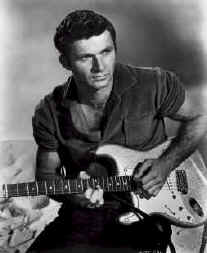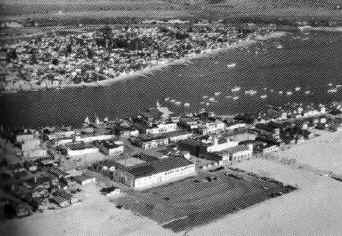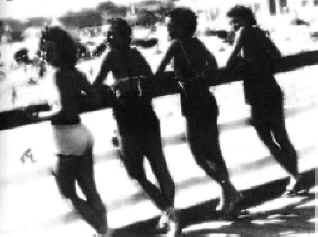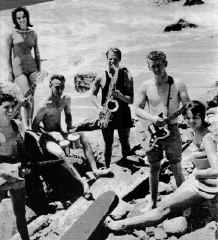Surf Music

Surf music is a genre of rock music
associated with surf Surf culture, particularly as found in
Southern California. It was especially popular from 1958 to 1964
in two major forms. The first is instrumental surf, distinguished
by reverb-heavy electric guitars played to evoke the sound of
crashing waves, largely pioneered by Dick Dale and the Del-Tones.
The second is vocal surf, which took elements of the original
surf sound and added vocal harmonies, a movement led by the Beach
Boys.
The new legion of predominately male teenaged
surfers began to develop their own culture, dressing and speaking
in a distinctive way. At high school the bleached-blonde surfers
wore Pendleton shirts; sandals; white, tight, and somewhat short
Levi's; and baggies - very large, loose, boxer-style shorts.
After school they jumped into oversized station wagons with
wooden sides (woodies), which transported their polys
(surfboards), drove to the beach and dashed to the ocean. They
ran with their sticks (surfboards) into the soup (foaming water
near the beach) and tried to catch a wave. Some would only
"fun surf" on the three-to-six foot waves. The more
daring surfers would carry their "big guns" (surfboards
designed for riding tall waves) into the water, pick up a
"hairy" wave (a fast wave that is difficult to surf)
and "shoot" (ride) it, sometimes "hot
dogging" (performing tricks) to impress the
"bunnies" (girls) on the shore. All surfers showed
disdain for the poorly skilled or fraudulent, to whom they
referred as "gremlins" or "kooks."

Surfers listened to their own music that
originated with Dick Dale and his Del-Tones. Born in Beirut,
Lebanon, Dale (Richard Monsour) grew up on the Southern
California coast and joined the hordes of young surfers. A guitar
enthusiasts, Dale had released a few in distinctive singles on
his own label in 1960. Dale worked closely with Leo Fender, the
manufacturer of the first mass produced, solid body electric
guitar and the president of Fender Instruments, to improve the
Showman amplifier and to develop the reverberation unit that
would give surf music its distinctively fuzzy sound.

Rendezvous Ballroom
During the summer of 1961, Dale and his band
unveiled the new surf sound during weekend dances at the
Rendezvous Ballroom in Balboa, California
Dick Dale and the Del-Tones released records for the surf crowd.
In September, 1961, "Lets Go Trippin'" topped the
California charts and edged toward the national Top Fifty. Dale
followed with "Surfbeat," "Surfing Drums,"
and "Shake 'n' Stomp," and in 1962 produced the
classical surf instrumental, "Miserlou." In early 1963,
Capitol Records signed Dale and called him the King of the Surf
Guitar. The same year he appeared in William Asher direct movie
Beach Party, and by 1963 had become a California celebrity.
By the end of 1963, surf music had become a national craze.





